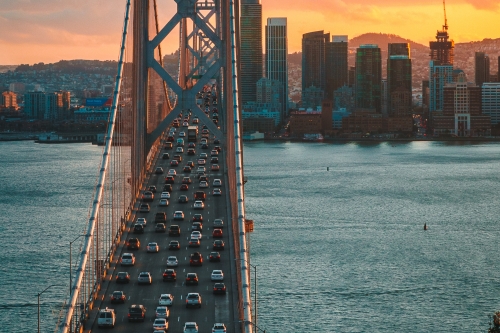CEE Professor Alex Bayen was recently featured in a transportation segment piece from The Mercury News discussing freeway congestion on the Bay Bridge and potential solutions. The once bustling downtown offices in the Bay Area filled with techies and lawyers are now empty. BART's ridership has dropped by 60% after many passengers abandoned the system three years ago and never returned.
Even though remote work has caused a significant shift in travel patterns, and taxpayers have spent billions of dollars on alternative transportation systems, freeways are congested again. Radio stations constantly update listeners on traffic jams, with the MacArthur Maze being a mess, I-880 a slog, and 101 a zoo.
According to Bayen, who studies traffic patterns, the situation seems paradoxical. He notes that "We're at capacity. It might not be the exact same times, in the same circumstances. But we're at capacity." The solution to this resurgent congestion may be the least popular idea yet: make it even more expensive to commute by car.
One of the most high-profile examples of this situation is the Bay Bridge. Although overall bridge traffic is still down approximately 10% compared to 2019, morning commutes from Oakland to San Francisco are often worse than before the pandemic. During rush hour, drivers congest the bridge, and morning travel speeds are 32% slower than four years ago, according to congestion data tracking speeds from Treasure Island to the Fremont Street exit in San Francisco. However, many afternoon commutes are still lighter for many, with Bay Bridge speeds averaging 34% faster, leaving San Francisco.

